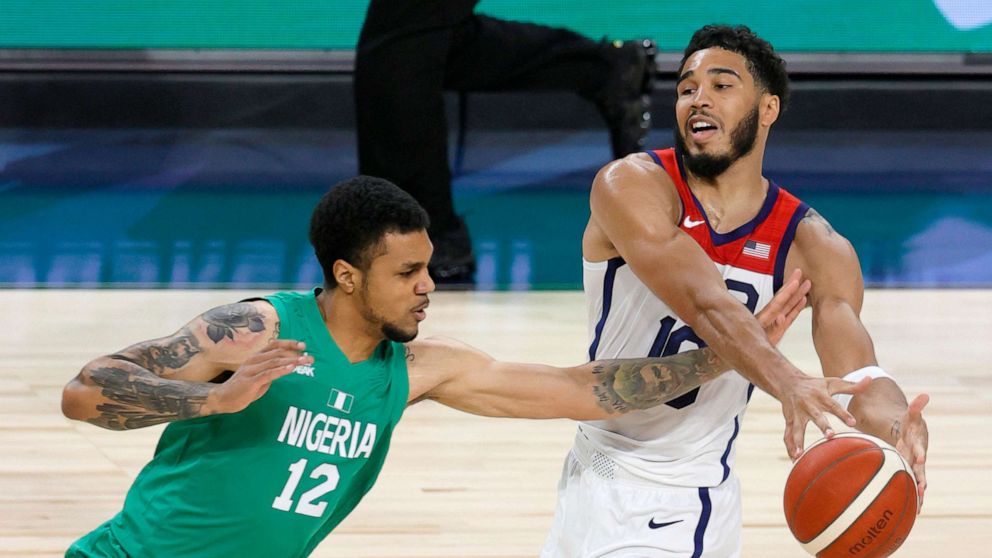Nigeria men aim for Africa's 1st Olympic basketball medal
It was one of the most lopsided losses in Olympic basketball history: Kobe Bryant, Carmelo Anthony and Team USA thrashed the Nigerian men’s basketball team by 83 points in London in 2012, with a final score of 156-73.
“I remember that game,” said 21-year-old Precious Achiuwa, who was born in Nigeria and immigrated to the United States in eighth grade. “It wasn’t good.”
Fast forward nine years, and Achiuwa, now a forward for the Miami Heat and Nigeria’s national team, helped pull off a surprising upset against Team USA, 90-87, in an Olympic exhibition game two weeks ago -- playing highlight-reel defense against American superstar Kevin Durant.
Stream ABC News Live Prime weeknights at 7:00 p.m. and 9:00 p.m. ET at abcnewslive.com
It was the first time an African team has ever defeated Team USA. It was a coming-out party of sorts for the Nigerian team, called D’Tigers, who are hunting for Africa’s first basketball medal in the upcoming Olympics.
“Hopefully it brings a lot of attention to us from younger athletes that are Nigerian, that may be interested in being a part of Nigerian basketball now,” said Gabe Nnamdi Vincent, a Nigerian American guard who, like Achiuwa, plays for the NBA’s Heat and the Nigerian national team.
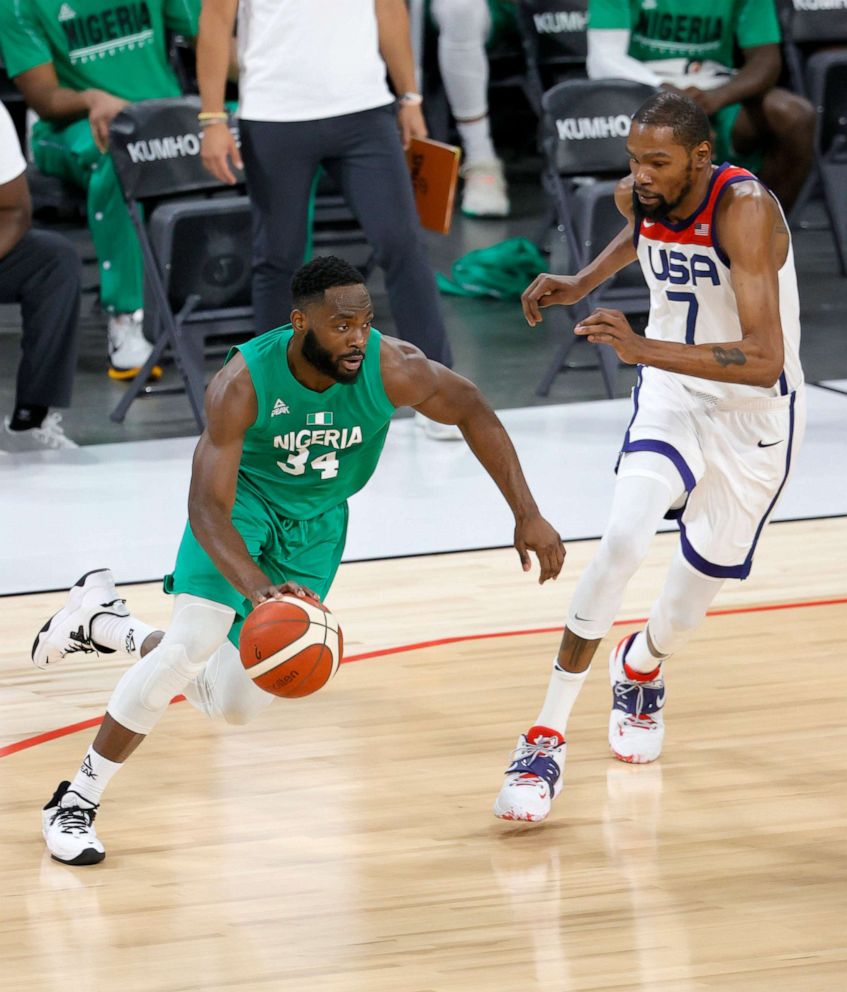
Stephen Bardo, a former NBA player and college basketball analyst who has run basketball clinics across Africa, told ABC News he wasn’t surprised by Nigeria’s victory.
“Over half that team has NCAA or NBA experience,” he said. Eight players on the team’s 12-man Olympic roster are currently playing in the NBA.
The team also has a top-flight coach in Mike Brown -- a former NBA coach of the year who helmed teams with some of the world’s top stars, including LeBron James and Bryant.
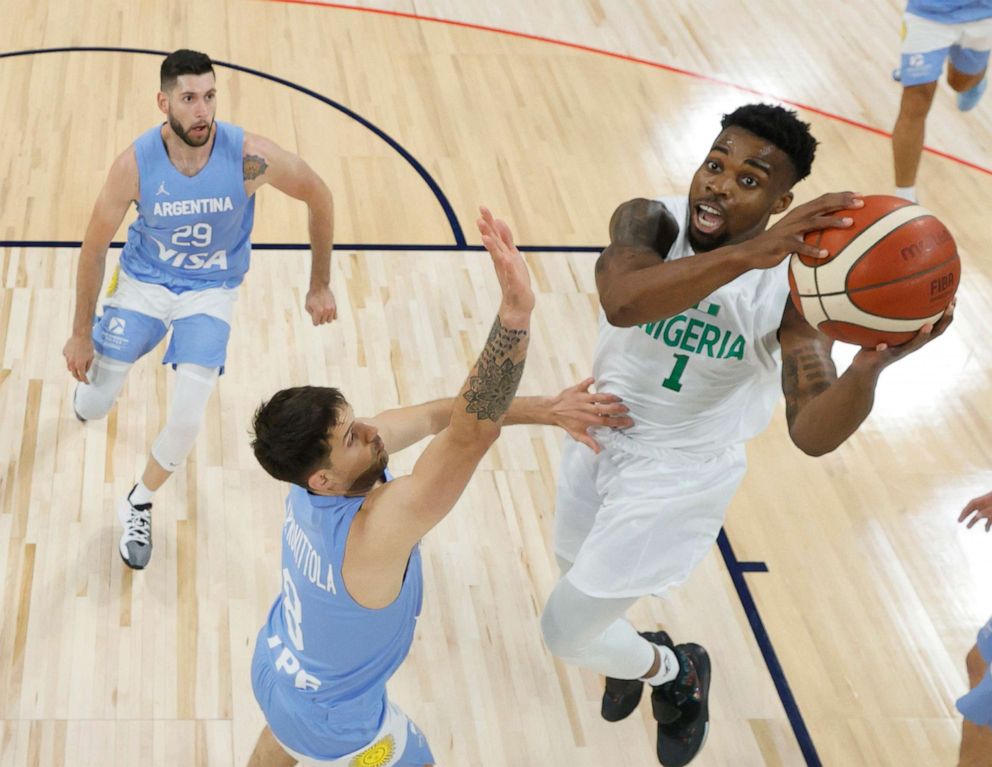
“I've been a head coach in the NBA Finals. I've been an assistant coach in multiple finals with multiple different teams. And I've won a couple,” he told ABC News. “Being a coach in the Olympics, I've never done that. So why not experience that now?”
While he doesn’t have any personal ties to Nigeria, Brown sees the role as an opportunity to build something bigger than a strong national team -- and is working for the Nigerian Basketball Federation without pay.
“I got 10 toes in. I got both arms in. I got my big ole head in, every part of my body is in -- to uplift Nigeria as a country through the game of basketball,” he said.
With a team of stars, the USA men’s team is still the favorite for the gold medal in Japan. But after dropping consecutive exhibition games to Nigeria and a powerhouse Australian team, the Americans are entering their first game in their shakiest position since 2004, when a team of NBA stars struggled to play together and wound up with the bronze medal at the Athens Olympics.
Brown said “the rest of the world is catching up” to Team USA.
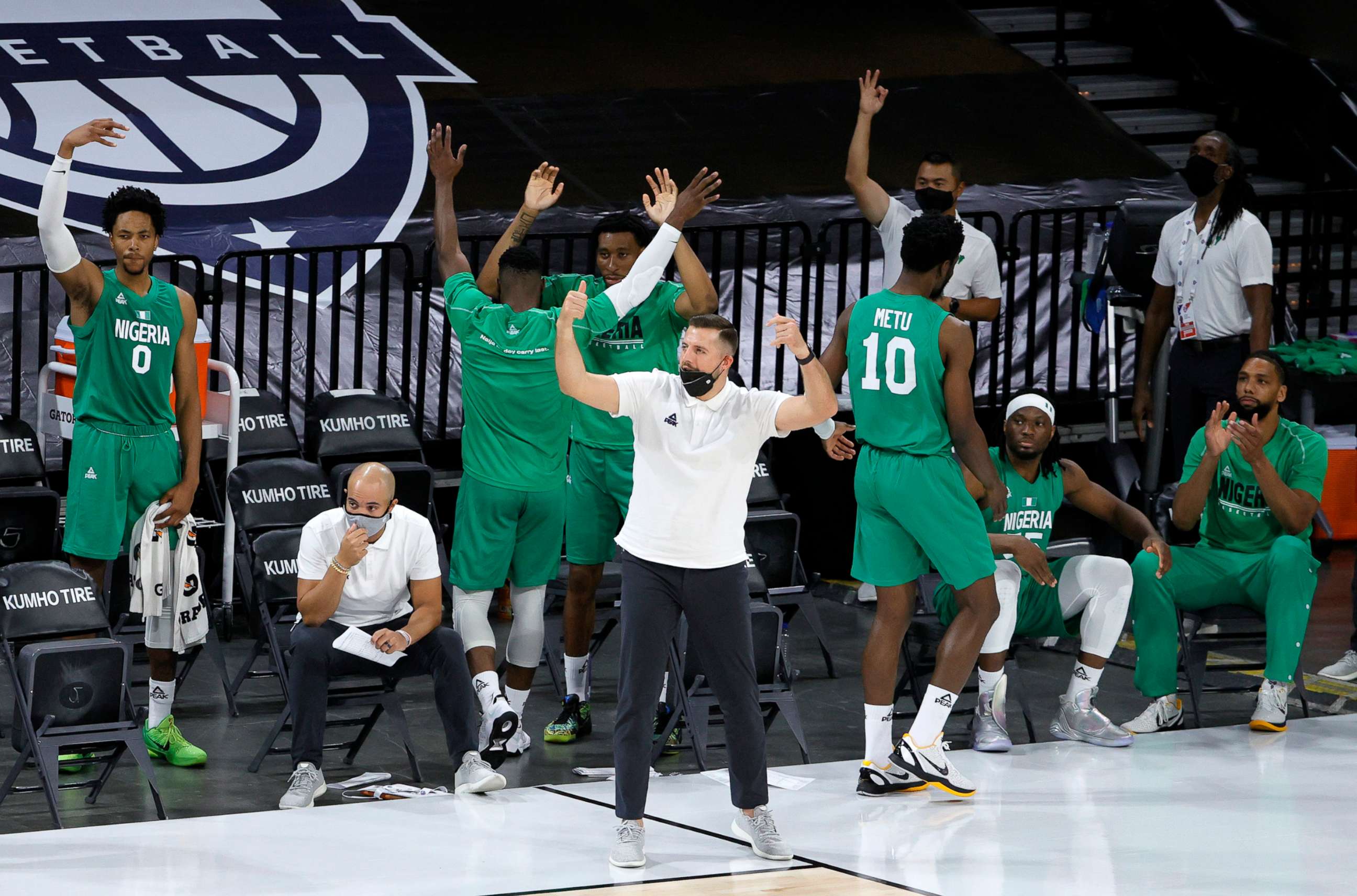
That shrinking skills gap has been on full display this summer, as Giannis Antetokounmpo, the Milwaukee Bucks superstar born in Greece to Nigerian parents, led his team to victory in the NBA Finals, through the playoffs filled with teams anchored by stars from Cameroon, Slovenia, Serbia, France and the Bahamas.
“We all fought so hard to make sure that we opened the door for the next generation to come and compete in this game,” said Dikembe Mutombo, the Congolese American Hall of Fame basketball player-turned-philanthropist.
He was one of three African-born players in the NBA when he was drafted in 1991. Last year, the NBA season began with 107 international players from 41 countries -- including 14 from Africa.
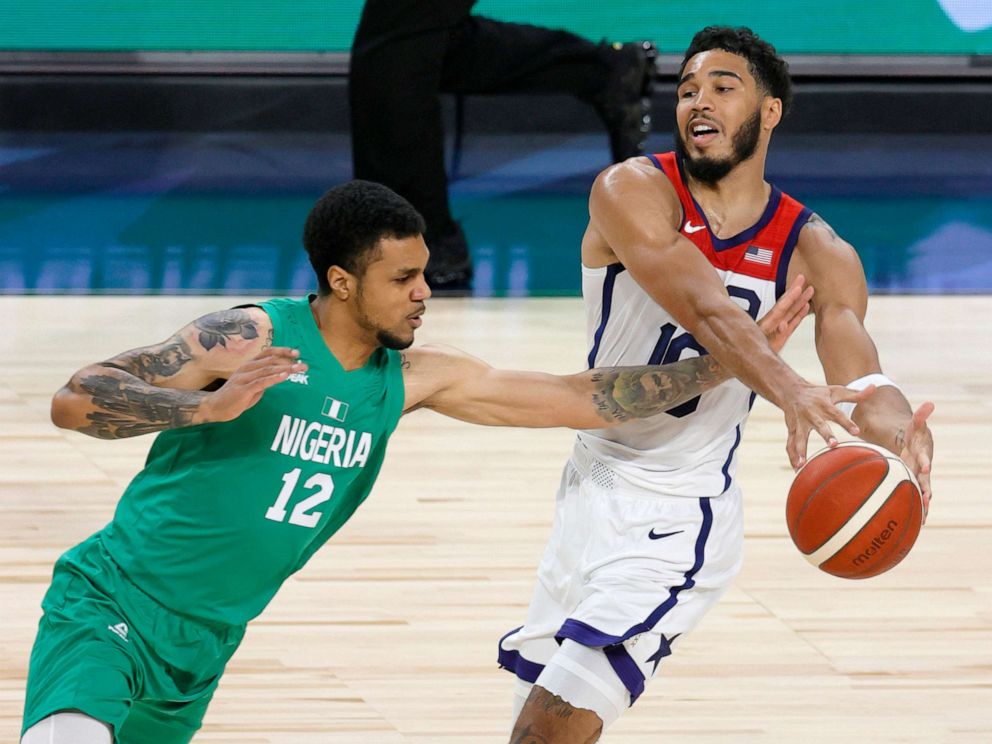
Now, he’s excited to watch the Nigerian team perform in Tokyo, and said they have a good shot at ending up on that medal stand.
“This will be a great celebration for everyone on the continent of Africa. We can say that we did it -- not just Nigeria,” he said. “They are representing a big flag, not just the green flag of Nigeria.”
Ekpe Udoh, a veteran on Team Nigeria who played in the NBA for eight years, expressed optimism for the future of the national team.
“The core of our team [is] pretty young,” he told ABC News. “So if we can start now and continue to build a culture, I know we'll be successful for years to come.”
“I don't think there's any one or two countries that would dominate something like the Olympics forever,” Vincent told ABC News. “I think it's only a matter of time that Africa itself will step up.”
